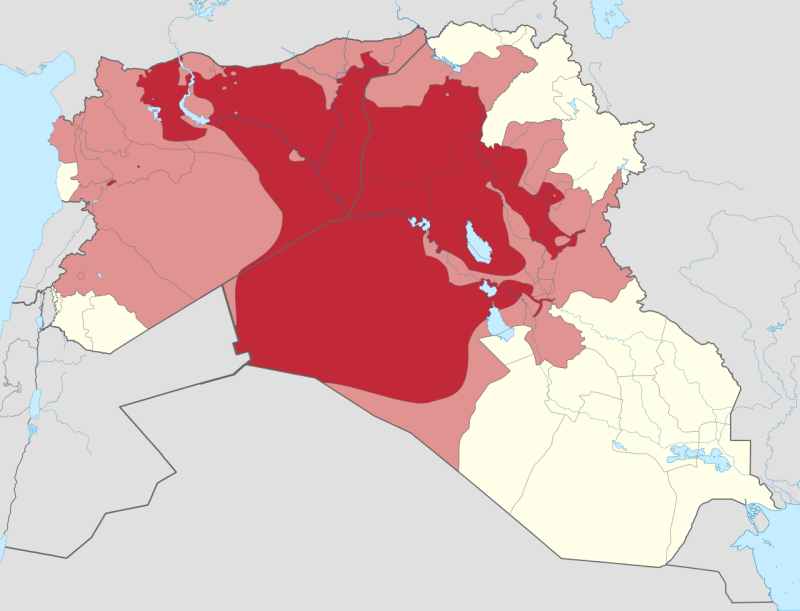

Territorial control of ISIS as of July 19. Dark Red - Area controlled by ISIS; Pink - Area claimed by ISIS; White - Rest of Syria and Iraq
The Islamic State of Iraq and Syria (ISIS) now has an even tighter grip in Mosul after the militant group burned down a 1,800-year-old Mosul church Saturday. Christians had been forced to convert to Islam, pay a tax which is referred to as jizya, or flee the city by the deadline of Saturday at noon, according to a report by Al Arabiya.
Al Arabiya also reported that the Islamic State had been destroying other Christian properties in Mosul, the most significant of which was the destruction of what officials say was "almost certainly the tomb of Biblical prophet Jonah" (internal quotes excluded).
The last 1,500 Christian families left Mosul last week as a result of the Islamic State's threats. Many of those families were abused and robbed by ISIS at departure checkpoints for refusing to convert to Islam, multiple reports stated.
An anonymous Mosul resident told Reuters that "one hundred percent of people are angry that the Islamic State is here but there is nothing [they] can do."
Christian families who leave Mosul often flee to places such as Hamadaniyah, or Qara Qosh, and other Christian communities on the outskirts of Mosul. However, despite Kurdish protection, many of these towns are depleted of resources as ISIS cuts off their utilities from Mosul, according to the Daily Beast.
Mosul residents are given the opportunity to "repent" and admit that they were "wrong", at which ISIS would give them a paper with the stamp of the ISIS logo to secure their future safety. Reuters reported that they would do so by visiting the home of a local sheikh "who hosts a representative of the Islamic State on Fridays after midday prayers."
ISIS first seized power in Mosul when they captured 30 families as hostage, and demanded that the Mosul officials let them "take over the town," threatening the families' safety otherwise. Local leaders gave in to their demands in response, concerned for the families.
As the militant group has been capturing town to town in not only Iraq but also in Syria, their power has been increasing in terms of numbers and equipment, as they frequently seize weapons and vehicles from the communities that they subdue. The group says that their goal is to seize Baghdad.


















